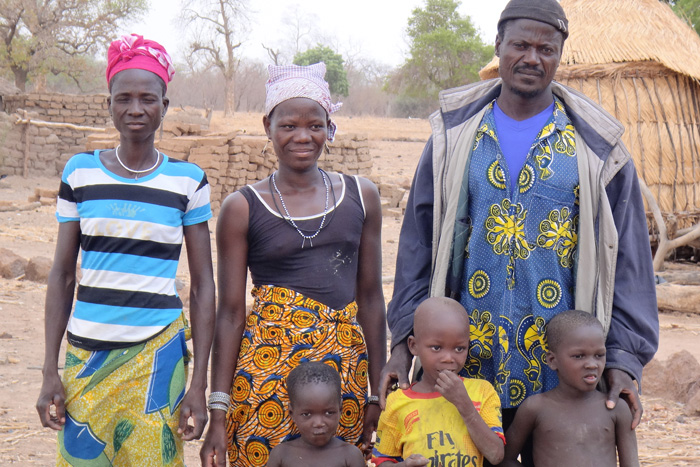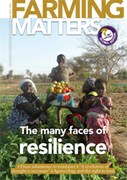Lower rainfall in Burkina Faso meant that Souobou Tiguidanla and his family could not produce enough food to feed themselves. Then they adopted agroecological practices, and now they have enough to share with their neighbours.
“My name is Souobou Tiguidanla. I am 40 years old and live in Toumbenga village, Gayeri district in eastern Burkina Faso. I have four wives and an extended family including 11 children. We grow mostly maize, millet and sorghum. In 2010 and 2011, we were hungry because rainfall was poor and we were not able to produce enough food for ourselves. Something needed to change.
Last year I began to experiment with agroecological practices. For example, I built stone contours on my fields. This keeps the rainwater from flowing away. We also started to make compost with crop residues and cow manure. In my village I was the first one to use these practices, which hardly cost anything, just labour.
The soil has become more moist and fertile. Our yields increased from 1900 kg in 2012 to about 3900 kg in 2013. My family is now able to eat well. When others in my village did not have a good harvest in 2013, we were even able to assist them with food.
I am very proud of these achievements. My children are already learning to use the new practices and I am ready to teach others too. Soon, we will buy more tools to make our work building stone contours easier, and extra cows to produce more manure for composting.”
Interview by Tsuamba Bourgou, executive director of Association Nourir Sans Détruire (ANSD) in Burkina Faso, an organisation which facilitates farmer experiments on agroecology.


